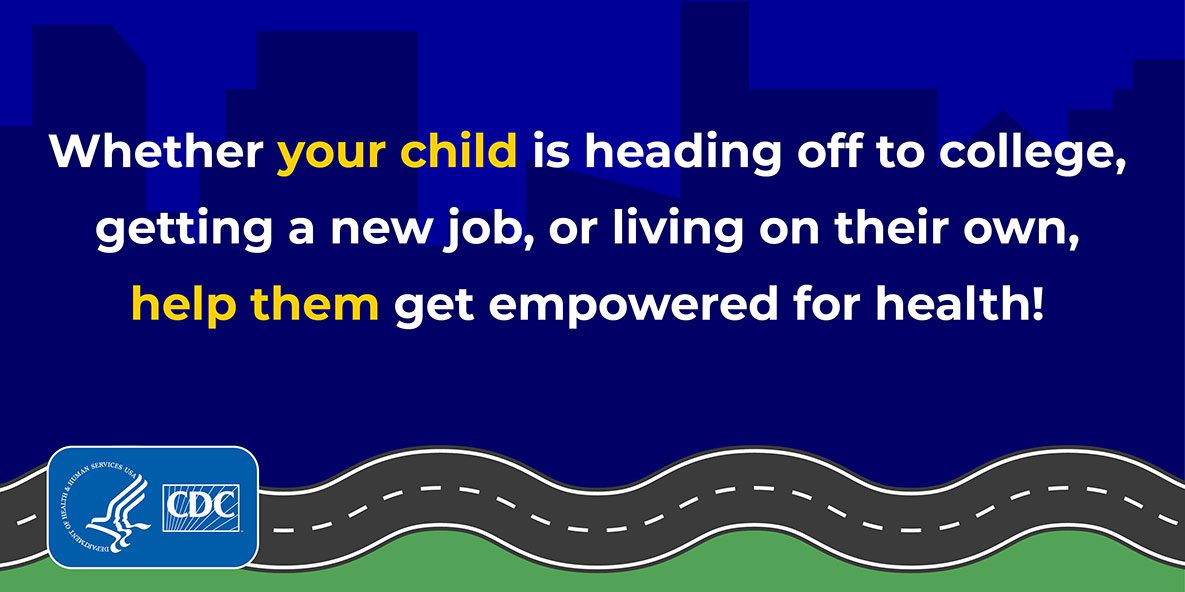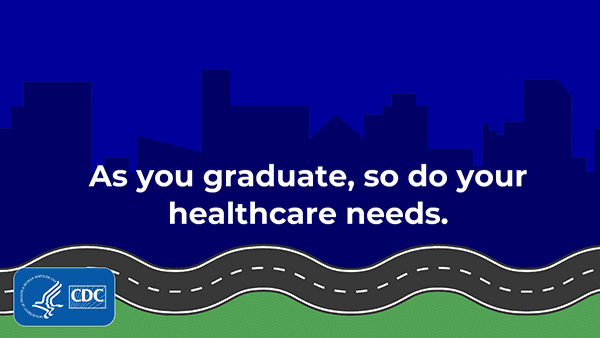Health Tips for Graduates

Graduation is a time of excitement and change for many individuals and their families. It’s also a time for new grads to get Empowered 4 Health. For graduates with a chronic health condition like sickle cell disease, a congenital heart defect or ADHD, times of transition require additional planning to find continued care in their new environment. Making an emergency plan is also helpful at every new stage of life.
Here are some health tips for graduates, their parents and caregivers as well as health care providers to make this time of transition a little smoother.
College students can get Empowered 4 Health by:
- Getting to know the location and the services offered at their college’s health center.
- Learning more about reasonable accommodations that can help students with special needs thrive such as extended test time, recorded lectures, and notetaking assistance.
- Adding local contacts into their phone to call in case of a medical emergency. The ideal emergency contact is someone who knows what to do if the student needs help.
Recent grads going into the workforce or independent living can get Empowered 4 Health by:
- Asking their doctor for a referral to a specialist near them if they require specialized care.
- Talking to human resources department about workplace accessibility at their new job.
- Locating a nearby pharmacy and never starting or stopping any medications without first talking to their doctor.
- Getting a copy of their medical records and understanding their medical history.
Join our conversation on social media about empowering grads to stay healthy in college, the work place, and independent living. Use #Empowered4Health on Instagram and Twitter and tag @CDC_NCBDDD on Twitter!
Additional Resources
Specialized Care
- Congenital Heart Defects: https://www.cdc.gov/ncbddd/heartdefects/index.html
- Healthy Living for those with a disability: https://www.cdc.gov/ncbddd/disabilityandhealth/healthyliving.html
- Emergency planning for those with a disability: https://www.cdc.gov/ncbddd/disabilityandhealth/emergencypreparedness.html
- Spina Bifida: https://www.cdc.gov/ncbddd/spinabifida/adult.html
- Tourette Syndrome: https://www.cdc.gov/ncbddd/tourette/families.html
- Taking Charge of Your Health and Health Care: https://www.cdc.gov/features/sickle-cell-transition/index.html
- Sickle Cell Transition Videos: https://www.cdc.gov/ncbddd/sicklecell/materials/video.html?s_cid=ncbddd_sc_v1_feat_2018_6&%20#su-p1
For Parents
- Children’s Mental Health: https://www.cdc.gov/childrensmentalhealth/index.html
- Recommended vaccination schedule for those over the age of 18: https://www.cdc.gov/vaccines/schedules/hcp/imz/adult.html
- Resources for parents: https://www.cdc.gov/parents/index.html
College and Independent Living Resources
- 9 tips to Living well with SCD in College: https://www.cdc.gov/ncbddd/sicklecell/documents/SCD-factsheet_9steps.pdf pdf iconpdf icon[636 KB, 2 pages]
- College Health and Safety: https://www.cdc.gov/family/college/
- Personal Health Preparedness: https://www.cdc.gov/cpr/prepareyourhealth/PersonalHealth.htm
- Emergency planning for those with chronic conditions and disabilities: https://www.cdc.gov/disasters/chronic.html

